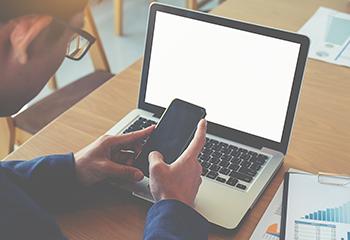智能手机/电脑侵蚀你的个人生活 ?手机电脑可以分散学生的注意力?
Comments from
wangbin6087 2017-8-10 17:47 ""中国传统文化以“元气”、“先天一炁”等概念系统的各部分之间相生相克系统整分系统体性. 不是用科学的语言概念来描述的。中国传统文化以“元气”来描述它。元气来源于天地、承运于父母,耗散于出生后的生活经历,气尽则人亡。脉象中有它的影子。"" http://blog.sciencenet.cn/home.php?mod=space&uid=847277&do=blog&id=1070544
内心永远在空灵的境界中。“必委致其志,虚以待之”,“至于六根大定,一念不生,方得相应”,六根这眼、耳、鼻、舌、身、意大定,都不动了,感觉状态都没有了,到这个境界才属于静。
Leads me to align my thought with the following article -
"When it comes to being productive, focus is key.
“I've found that when I really want to focus, I keep my phone on silent, I close my door, and I close my browser,” he said. “Having tabs open is to maintaining focus as a bag of Oreos in your cupboard is to staying
healthy.”
?So, what's my point: Don't let that happens to you: 智能手机/电脑侵蚀你的个人生活 - don't get boggled down in the use of technology around you: cell phone, computer, phone, TV, car, etc. 抱朴守拙, 六根大定,一念不生,方得相应境界才属于静.
** Ref. http://blog.sina.com.cn/s/blog_65c26d780102vgeq.html
内心永远在空灵的境界中。保持这样无念,静到极点,当然要时间,三天、七天,或是一百天,等到内在“先天一炁,从虚无中来”,空极了,身上的气脉就通了。所以密宗、道家修气脉,太用意去修都不对。你有个反应有个感觉,那不是真,是凡精凡气,是普通的生理上的反应。这个真正元炁一来,气脉刹那之间同时都打通,那是真来了。这个真从哪里来呢?从虚无中来。你念头思想越空到极点,感觉知觉越空到极点,所谓真空生妙有,才有可能发生真炁从虚无中来。
所以修道的人“必委致其志,虚以待之”,在佛学讲空,要空到什么程度呢? “至于六根大定,一念不生,方得相应”,六根这眼、耳、鼻、舌、身、意大定,都不动了,感觉状态都没有了,到这个境界才属于静。如果身上还在这里跳一下,那里动一下,那完全是感觉,是你的意识在动。六根包括身根,身体的反应在动,就是身根没有大定,所以都不是。要“六根大定,一念不生,方得相应”。
** Ref. 2 **
How to Minimize Technological Distractions and Maximize Productivity
Career News | by
Alison
Herget
Friday, August 4, 2017

MIND AND I/Shutterstock
Have
you
ever
thought
you
heard
your
phone
buzz
or
ring
only
to
discover
when
you
look
at
the
screen
there
is
no
notification
or
phone
call?
Is
checking
your
phone
the
last
thing
you
do
before
bed
and
the
first
thing
you
do
when
you
get
up
in
the
morning?
Do
you
respond
to
every
text
message
the
minute
it
comes
in?
If
you
can
relate
to
any
of
these
experiences,
you
could
suffer
from
what
Larry
Rosen,
an
expert
in
the
field
of
the
psychology
of
technology,
calls
an
“iDisorder”
–
a
problem
marked
by
the
overuse
of
technology
that
can
zap
your
productivity
at
work
and
increasingly
erode
your
personal
life.
“Just
because
your
phone
feels
like
it's
beeping
at
you
urgently,
there's
no
rule
that
says
you
have
to
constantly
check
it,”
said
Rosen,
former
chair
of
the
psychology
department
at
California
State
University,
Dominguez
Hills,
who
continues
to
study
the
topic
of
technological
distractions.
While
anyone
who
has
a
smartphone
or
computer
is
susceptible
to
these
distractions,
those
who
work
in
academia
may
find
that
it’s
particularly
hard
to
reduce
interruptions
from
technology
–
whether
it’s
from
receiving
an
increasing
amount
of
emails
from
their
students
day
or
night,
or
through
collaborating
round-the-clock
with
colleagues
on
research
or
a
project.
Part
of
the
constant
distraction
is
due
to
the
addictive
nature
of
checking
for
messages
and
notifications,
said
Terri
Kurtzberg,
an
associate
professor
of
management
and
global
business
at
Rutgers
Business
School
who
studies
technology
and
its
effects
on
the
workplace.
The
psychological
response
to
checking
notifications
on
a
phone,
for
instance,
stimulates
the
same
reward
centers
in
the
brain
as
heroin.
The
result
is
that
our
brains
“get
used
to
living
on
the
‘high’
associated
with
a
constant
stream
of
steady
new
information,”
she
said,
and
we
constantly
seek
out
new
sources
of
stimulation
via
technology.
Research
also
shows
that
even
if
you’re
not
using
your
phone
but
it’s
within
your
line
of
sight
as
you
try
to
work,
productivity
is
reduced,
she
said.
“Seeing
a
message
notification
can
be
as
distracting
as
actually
reading
and
responding
to
it,”
she
added.
Experts
offer
a
variety
of
tips
to
minimize
distractions
from
the
incessant
barrage
of
alerts
and
emails.
Rosen
recommends
that
you
set
a
schedule,
such
as
checking
messages
or
notifications
on
the
half
hour,
and
tell
people
in
advance
that
you’re
doing
that,
so
they
know
not
to
expect
an
immediate
response.
Turning
off
alerts,
except
for
those
from
a
spouse
or
daycare,
for
instance,
can
also
help
eliminate
the
constant
need
to
check-in.
Faculty
members
who
teach
classes
not
only
have
to
deal
with
students
who
become
distracted
by
technology
in
the
classroom,
but
those
who
email
at
all
hours
of
the
day
expecting
an
immediate
response.
By
putting
a
note
in
your
syllabus
with
expectations
regarding
communications
–
such
as
that
you
will
only
respond
to
emails
within
24
hours
and
not
outside
certain
hours
–
you
designate
boundaries
for
yourself
that
can
help
make
you
more
productive,
reduce
stress,
and
help
keep
work
out
of
your
home
life,
Rosen
said.
Want
to
be
a
more
effective
teacher?
Consider
developing
policies
regarding
the
use
of
technology
in
the
classroom.
Citing
research
that
shows
those
who
take
notes
with
pen
and
paper
learn
and
retain
information
better
than
electronic
note
takers
and
that
open
computers
can
distract
students
regardless
of
whether
they
are
using
them,
Kurtzberg
has
developed
classroom
ground
rules.
“We
need
to
be
in
control
of
the
messy
question
of
distraction
in
our
classrooms,”
she
said.
“I,
personally,
have
a
strict
no-technology
policy
in
my
classes.
No
phones,
no
laptops
for
taking
notes.
Nothing.”
For
those
whose
jobs
closely
require
the
use
of
technology,
diminishing
distractions
can
be
difficult
but
achievable.
“I
am
a
big
proponent
of
minimizing
work
after
normal
hours,”
said
Andy
Shaw,
director
of
enrollment
communications
at
York
College
of
Pennsylvania.
“I'll
answer
something
if
I
happen
to
have
a
minute,
but
mostly,
I'm
putting
my
phone
down
when
I
walk
through
the
door
at
home
and
not
bringing
my
laptop
out.
No
one
has
ever
died
in
higher
ed
for
not
responding
to
an
email
confirming
you'll
be
on
tomorrow's
conference
call.”
When
it
comes
to
being
productive,
focus
is
key.
“I've
found
that
when
I
really
want
to
focus,
I
keep
my
phone
on
silent,
I
close
my
door,
and
I
close
my
browser,”
he
said.
“Having
tabs
open
is
to
maintaining
focus
as
a
bag
of
Oreos
in
your
cupboard
is
to
staying
healthy.”
如何最大限度地减少技术干扰并最大限度地提高生产力
职业新闻|作者:Alison Herget
2017年8月4日,星期五
MIND和I / Shutterstock
你有没有想过你听到你的手机嗡嗡声或响铃只发现当你看屏幕没有通知或电话?检查你的手机睡觉前最后一件事,你早上起床的第一件事吗?你每分钟回复一下短信吗?
如果您可以与任何这些经验相关,您可能会遇到技术心理学领域的专家Larry Rosen称之为“iDisorder” - 这是一个技术过度使用的问题,可以使您的工作效率下降并越来越多地侵蚀你的个人生活。
加州州立大学,多明戈斯山脉心理学系主任罗森(Rosen)说:“只是因为你的手机感觉像是在紧张的哔哔哔哔哔哔哔,没有规则说你必须不断检查,”他继续研究这个话题技术干扰。
虽然任何拥有智能手机或电脑的人都容易受到这些干扰,但在学术界工作的人可能会发现,特别难以减少技术中断 - 无论是白天还是晚上从学生收到越来越多的电子邮件,或通过协作与研究或项目的同事们全天24小时。
罗格斯商学院管理和全球业务副教授特里·库尔茨伯格(Terri Kurtzberg)说,研究技术及其对工作场所的影响,不断分散注意力的部分原因是检查消息和通知的上瘾性。例如,在电话上检查通知的心理反应刺激大脑中与海洛因相同的奖励中心。结果是,我们的大脑“习惯于生活在与高稳定性相关的稳定新信息的持续流动”,她说,我们不断通过技术寻求新的刺激来源。
研究还表明,即使你没有使用手机,但是当你尝试工作时,它在你的视线范围内,生产力就会降低,她说。 “看到消息通知可能会像实际阅读和回应一样分心,”她补充说。
专家提供了各种提示,以尽量减少不必要的警报和电子邮件的干扰。
Rosen建议您设置一个时间表,例如在半小时内检查邮件或通知,并提前通知人们您正在做的事情,因此他们知道不要期待立即回复。例如,关闭警报,除了配偶或托儿服务,也可以帮助消除不必要的登机手续。
教授班的教职员工不仅必须处理在课堂上被技术分散的学生,而且在一天中的所有时间都通过电子邮件发送的学生都要立即回应。通过在您的教学大纲中提供有关通信的期望 - 例如您将仅在24小时内回复电子邮件,而不是在特定时间之内回复电子邮件 - 您可以为自己指定边界,帮助您更有效率,减轻压力,并帮助保持工作罗森说,在你的家庭生活中。
想成为一个更有效的老师?考虑制定教学中使用技术的政策。引用研究表明,用笔和纸笔记的人比电子笔记本电脑学习和保留信息,开放的电脑可以分散学生的注意力,不管他们是否使用它们,Kurtzberg开发了课堂基础规则。
她说:“我们需要控制我们教室里分散注意力的混乱问题。” “我个人在课堂上有一个严格的无技术政策。没有电话,没有笔记本电脑记笔记。没有。”
对于那些工作密切需要使用技术的人来说,减少分心可能是困难的,但可以实现的。
宾夕法尼亚约克学院招生通讯主任安迪•肖(Andy Shaw)表示:“我是在正常时间后尽量减少工作的大支持者。 “我会回答一些事情,如果我碰巧有一分钟,但大多数情况下,当我在家里走过门,而不是把我的笔记本电脑出来时,我把手机放下来。没有人因为没有回复电子邮件确认你将在明天的电话会议上死亡。“
当谈到生产力时,重点是关键。
“我发现当我真的想要专注时,我的手机保持沉默,我关上了门,我关上浏览器,”他说。 “打开标签是保持焦点,因为你的橱柜里的Oreos包是保持健康的。”





